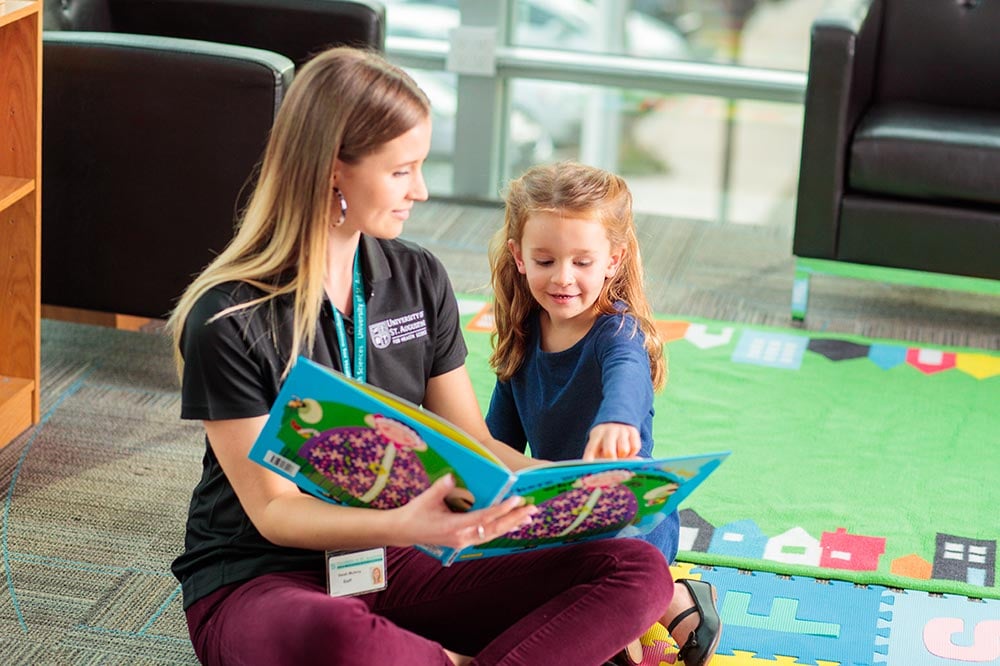
As a speech-language therapist (SLP) working with children, you teach each child valuable skills and give them time for supervised practice. But depending on your work setting, you might have only one hour per week with each child. By contrast, parents are able to engage their child in meaningful and relevant activities in their natural setting throughout the day. So, to deepen the impact of your therapy, it’s essential to include the parents as partners in intervention. Studies show that children whose parents work on speech-language exercises with them improve faster. Here are 10 tips for how to work with parents for maximum benefit.
10 steps to maximize the child’s progress
- Build trust with the child and parents.
Take the time to earn the child’s trust through patience, empathy, and honest communication. Trust and a good rapport will encourage the child to engage with you—and if the child trusts you, the parents are likely to as well. A trusting relationship serves as an incentive for all parties to keep working toward the goals you’ve set together.
- Empathize with the parents.
When their child has speech problems, parents may be afraid for their child’s future—and they may express their anxiety in ways that are not entirely helpful to the process. Try to feel into what the situation is like for them; it will help you understand and stay patient. Demonstrate your empathy by listening to and validating parents’ concerns. Even if their top concerns aren’t the same as yours, they will feel heard.
- Help parents develop confidence in their ability to help.
When they begin the therapy process, some parents feel anxious about what will be expected of them and uncertain whether they can provide it. Remind parents that they are their child’s first and best teacher; they know their child better and spend more time interacting with their child than you ever could. Seeing parents and children gain confidence together will be one of the most rewarding aspects of your job.
- Enlist parents in goal setting.
Encourage parents to make their child’s therapy a top priority. Leverage their insights to help you, the child, and parents set realistic goals together and stick to them. Check in with the parents each week about the child’s progress and recalibrate the goals for the following week as needed.
- Demonstrate techniques to the parents.
If possible, have a parent join for the last few minutes of each session (or more) so you can show them what a therapy strategy looks and sounds like. If techniques are complex, or if you are working in a school setting, you can create a short video of the technique with your phone and send it to the parents.
6. Create a communication notebook.
If you don’t have consistent access to the parents, you can use a notebook to share information. The parents can make progress notes each day and send it back via the child. In turn, you can record your observations and describe your homework assignments.
7. Give homework that is both fun and functional.
Get creative with homework assignments that relate to the family’s daily routine, including meals, playtime, car rides, bath time, and bedtime. When activities are familiar and meaningful to the child, and they happen in the child’s comfortable surroundings, they are more motivating and fun. Thus, every interaction with the child becomes an opportunity to build their language learning—with vocabulary that might not naturally occur in the therapy setting. Ask parents for feedback about how the exercises are going and make adjustments as needed.
- Start small if needed.
If the parents aren’t practicing much with their child, it could be because they feel overwhelmed. You can scale your homework back to just one small and easy exercise, such as having the child ask for each snack they are given. Add more exercises after the parents and child gain confidence.
Or, if parents are apprehensive about a step you feel the child is ready for—such as introducing a new food to a child who has a swallowing disorder—consider pacing the progress at a rate that is comfortable for the parents. Children pick up on and often mirror their parents’ anxieties, so moving slowly could be helpful.
- Manage parents’ expectations and stay transparent.
When you connect with the parents, lead with what is going well. It’s possible to stay positive and encouraging while also staying transparent about the child’s progress. Don’t overpromise or convey false optimism to the parents, as this will only create more disappointment down the road. If the child isn’t meeting your goals, consider whether their diagnosis might need reevaluation.
- Share information about changes—and celebrate progress!
Whether progress or setbacks, discuss any new developments in the child’s speech with parents—and encourage them to do the same with you. If there are major changes in the child’s life, such as the addition of a pet or sibling, you can use these as an opportunity to practice new sounds and vocabulary. And remember that progress isn’t the only thing to celebrate—just working together can be its own reward.
The University of St. Augustine for Health Sciences (USAHS) offers a Master of Science in Speech-Language Pathology (MS-SLP). Designed for working students, the MS-SLP is an online program with four required on-campus residencies on the USAHS Austin campus. Prepare to make a difference in the lives of clients across the lifespan with a meaningful career in speech therapy!
For students with a bachelor’s degree in a field other than communications sciences and disorders (CSD) or SLP, we offer SLP leveling courses for completing the necessary pre-requisites to enter the graduate program.
References:
S.L. DeVeney, et al., “Parent-implemented versus clinician-directed interventions for late-talking toddlers: A systematic review of the literature.” Communication Disorders Quarterly, 2017, 1–10.
Lauren Lowry, “Parents’ Role in Language Intervention,” Hanen.org: http://www.hanen.org/Helpful-Info/Articles/Parents%E2%80%99-role-in-language-intervention.aspx
Lauren Lowry, “Parents as ‘Speech Therapists’: What a New Study Shows,” Hanen.org: http://www.hanen.org/Helpful-Info/Articles/Parents-as–Speech-Therapists–What-a-New-Study-S.aspx
Phuong Palafax, “5 Considerations for the Family/SLP Relationship,” Leader Live, May 23, 2018: https://blog.asha.org/2018/05/23/5-considerations-for-the-family-slp-relationship/
SpeechPathologyGraduatePrograms.org, “Why Working With the Entire Family Gets the Best Results in Kids Struggling with Speech-Language Issues”: https://www.speechpathologygraduateprograms.org/why-working-with-the-entire-family-gets-the-best-results-in-kids-struggling-with-speech-language-issues/








